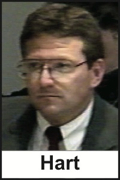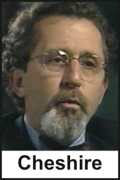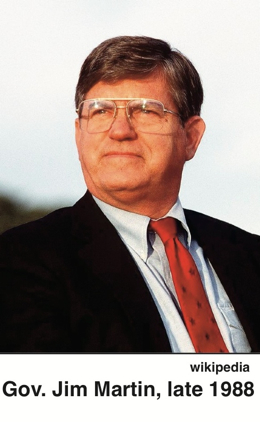Rascals case in brief
In the beginning, in 1989, more than 90 children at the Little Rascals Day Care Center in Edenton, North Carolina, accused a total of 20 adults with 429 instances of sexual abuse over a three-year period. It may have all begun with one parent’s complaint about punishment given her child.
Among the alleged perpetrators: the sheriff and mayor. But prosecutors would charge only Robin Byrum, Darlene Harris, Elizabeth “Betsy” Kelly, Robert “Bob” Kelly, Willard Scott Privott, Shelley Stone and Dawn Wilson – the Edenton 7.
Along with sodomy and beatings, allegations included a baby killed with a handgun, a child being hung upside down from a tree and being set on fire and countless other fantastic incidents involving spaceships, hot air balloons, pirate ships and trained sharks.
By the time prosecutors dropped the last charges in 1997, Little Rascals had become North Carolina’s longest and most costly criminal trial. Prosecutors kept defendants jailed in hopes at least one would turn against their supposed co-conspirators. Remarkably, none did. Another shameful record: Five defendants had to wait longer to face their accusers in court than anyone else in North Carolina history.
Between 1991 and 1997, Ofra Bikel produced three extraordinary episodes on the Little Rascals case for the PBS series “Frontline.” Although “Innocence Lost” did not deter prosecutors, it exposed their tactics and fostered nationwide skepticism and dismay.
With each passing year, the absurdity of the Little Rascals charges has become more obvious. But no admission of error has ever come from prosecutors, police, interviewers or parents. This site is devoted to the issues raised by this case.
On Facebook
Click for earlier Facebook posts archived on this site
Click to go to
Today’s random selection from the Little Rascals Day Care archives….
Click for earlier Facebook posts archived on this site
Click to go to
Today’s random selection from the Little Rascals Day Care archives….
Isn’t half of Junior’s life enough, North Carolina?
Sept. 8, 2014
“The aging prison population represents a national human-made epidemic decades in the making. …
“Our current trajectory is economically infeasible and morally untenable….
“Although there is no commonly agreed-upon age at which an incarcerated individual is ‘old’ – definitions range from 50 to 65 – it is clear that the number of people in prison requiring significant age-related medical care will continue to rise at a substantial rate. From 1995 to 2010, the U.S. prison population aged 55 or older nearly quadrupled….
“On average, it costs approximately twice as much to incarcerate someone aged 50 and over ($68,270) than a younger, more able-bodied individual ($34,135)….
“The elderly in prison also demonstrate a greater risk of injury, victimization, ailing health, and death than their younger counterparts….
“The phenomenon of accelerated aging, which can be attributed to the prevalence of environmental stressors coupled with a lack of access to holistic healthcare, means that the body of an incarcerated 50-year-old has a ‘physiological age’ that is 10 to 15 years older….
“The stated objectives of incarceration would suggest that correctional spending should be allocated among demographics in proportion to their public safety risk and potential for behavioral change.
“Aging adults in prison have the lowest recidivism rate and pose almost no threat to public safety. Nationwide, 43.3 percent of all released individuals recidivate within three years, while only 7 percent of those aged 50-64 are returned to prison for new convictions….”
– From “The High Costs of Low Risk: The Crisis of America’s Aging Prison Population” prepared by the Osborne Association (July 2014) (Hat tip, the New York Times)
Today is Andrew Junior Chandler’s 57th birthday. He has been in prison since he was 29 years old. Even if he were guilty – which he clearly is not – how can the State of North Carolina justify his continued incarceration?
Prosecutor reneged on promise to Betsy Kelly
 July 8, 2013
July 8, 2013
“As the parents made their case to the (North Carolina Parole Commission), prosecutors and defense attorneys continued sparring over whether the state had reneged on the plea bargain by trying to block (Betsy) Kelly’s parole.
“Kelly’s attorney, Joe Cheshire V, says prosecutor William Hart promised not to contest her parole if she agreed to the no-contest plea. Hart says the state never made such a pledge.
“Hart and assistant prosecutor Nancy Lamb attended the hearing to support the parents. They say it would be inappropriate for Kelly to be released, because she continues to publicly proclaim her innocence.
“ ‘The parents know she is guilty,’ Lamb told reporters before the hearing. ‘They know what their children have gone through.’
“Cheshire, continuing to maintain his client’s innocence, said Hart should have tried Kelly in court if he wanted to show she was guilty.
“ ‘He was afraid to do that,’ Cheshire said. ‘And now he’s running around saying that since she won’t admit her guilt, she should not get paroled. I think that’s pretty pathetic.’ ”
– From “Parents oppose parole for Little Rascals operator” in the News & Observer (April 12, 1994)
Pandering, bullying, grandstanding, double-crossing – in thwarting Betsy Kelly’s parole, the Little Rascals prosecutors scored a grand slam of misfeasance.
Here’s what Joe Cheshire recalls about that brutal day:
 “Simply taking that plea was distasteful to me, but when the awesome power of government meshes with the awesome power of the judiciary and neither want to find the truth, but instead to consummate a decided outcome, the individual gets ground up in the process.
“Simply taking that plea was distasteful to me, but when the awesome power of government meshes with the awesome power of the judiciary and neither want to find the truth, but instead to consummate a decided outcome, the individual gets ground up in the process.
“Betsy was desperate to come home and did not trust anyone, nor should she have. I am not a fool; I would not have agreed to such a plea if it did not insure her freedom. The only (apparent) risk was the Parole Board. The prosecutor had agreed to not oppose her parole, but then he reneged. He knew that our only alternative was to move that the plea be set aside and that we would not be in a position to do that.
“Yes, in retrospect I should not have trusted him…. But he was not willing to put it in writing, and (insisting on that) would have ended the negotiations….”
Little Rascals prosecutors seemed perversely unable to let any defendant go home without administering a final cheap shot. When Scott Privott was released under a no-contest plea deal in 1994, they added a last-minute stipulation that he undergo psychiatric evaluation as part of his five-year probation.
“I saw them weekly for about two months,” Privott recalls, “and then they reported that I was normal. My probation officer told me (Bill) Hart was pissed… and that was that.”
Alarmed ‘Frontline’ viewers turned to governor
 July 10, 2014
July 10, 2014
“Thank you for your letter expressing your concerns about the prosecution of the Little Rascals Day Care Center personnel in Chowan County. Although this matter is outside my jurisdiction as head of the executive branch, I appreciate your interest in the administration of justice in North Carolina….
“I would suggest that it might be appropriate to wait until after the trial when all the evidence has been heard before reaching conclusions about the correctness of actions taken by (District Attorney H.P. Williams) and the court.
“North Carolina has had a long history of evenhandedness in the administration of justice, and I am confident that the tradition continues to be in effect. Nonetheless, if you wish to express your concerns directly to the District Attorney, his address is…..”
– From Gov. Jim Martin’s response to PBS viewers appalled by the first installment of “Innocence Lost” (May 7, 1991)
Last week I found in the State Archives in Raleigh about a dozen letters beseeching Gov. Martin to look into the case. Although significantly less heated than those addressing the mayor of Edenton, the letters expressed alarm about the plight of the Edenton Seven:
“As a member of Amnesty International, I write letters to officials of foreign governments, many of them without democratic governments or traditions, urging them to look into the cases of people being unjustly treated…. (In Edenton) one fact cannot be ignored: Defendants have been held in jail without a trial for close to two years….”
– Laura J. Reid, New York City
“I was disturbed by the incredibly high bonds recommended by the District Attorney and allowed by the Judge…. I would hope that you will personally intervene to request judicial review of the bonds set….”
– Steven J. Edwards, Decatur, Ga.
“As a former teacher, I can assure you that children – especially young children – can easily be coaxed, cajoled or pressured into say just about anything an adult might wish them to say.”
– S.T. Reynolds, Woodland, Calif.
I have asked Gov. Martin, now retired and living at Lake Norman, to discuss his views of the Little Rascals case both then and now. I’ll be posting his response soon.
‘Juvenile renderings of grownups’ anxieties’
April 16, 2012
“At the beginning of each ritual-abuse case, the children had been eminently reliable, but what they communicated was that they had not been molested by satanists. Indeed, it was only after an investigation started, after intense and relentless insistence by adults, that youngsters produced criminal charges.
“By then, their utterances had nothing to do with their own feelings or experiences. Rather, what came from the mouths of babes were juvenile renderings of grownups’ anxieties.”
– From “Satan’s Silence: Ritual Abuse and the Making of a Modern American
Witch Hunt” by Debbie Nathan and Michael Snedeker (1995)











0 CommentsComment on Facebook